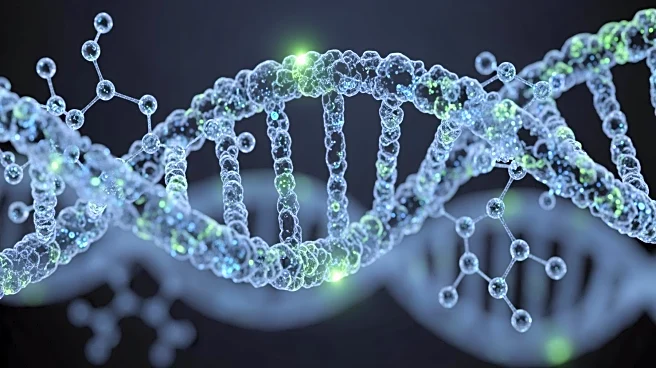What's Happening?
Recent research has highlighted the discovery of unusual biosynthetic gene clusters (uGCs) in bacteria and fungi that produce natural products (NPs) without prominent core enzymes. These gene clusters are
responsible for the biosynthesis of structurally diverse NPs, which have significant bioactivity and complex structures. Unlike canonical biosynthetic gene clusters, which have apparent core enzymes to define the backbone of NPs, uGCs utilize a different biosynthetic logic to produce these compounds. The study emphasizes the potential of uGCs to expand the genetic and chemical repertoire of microbial NPs, offering new avenues for drug discovery and development.
Why It's Important?
The identification of uGCs is crucial for the pharmaceutical industry as it opens up new possibilities for the development of novel drugs. Natural products have historically been a rich source of therapeutic agents, and the ability to harness these unusual gene clusters could lead to the discovery of new compounds with unique bioactivities. This advancement could significantly impact drug development, providing new treatments for various diseases and enhancing the understanding of microbial biosynthesis processes. The research also underscores the importance of genome mining in uncovering hidden biosynthetic potential within microorganisms.









